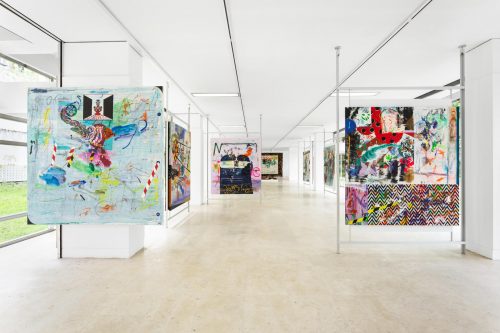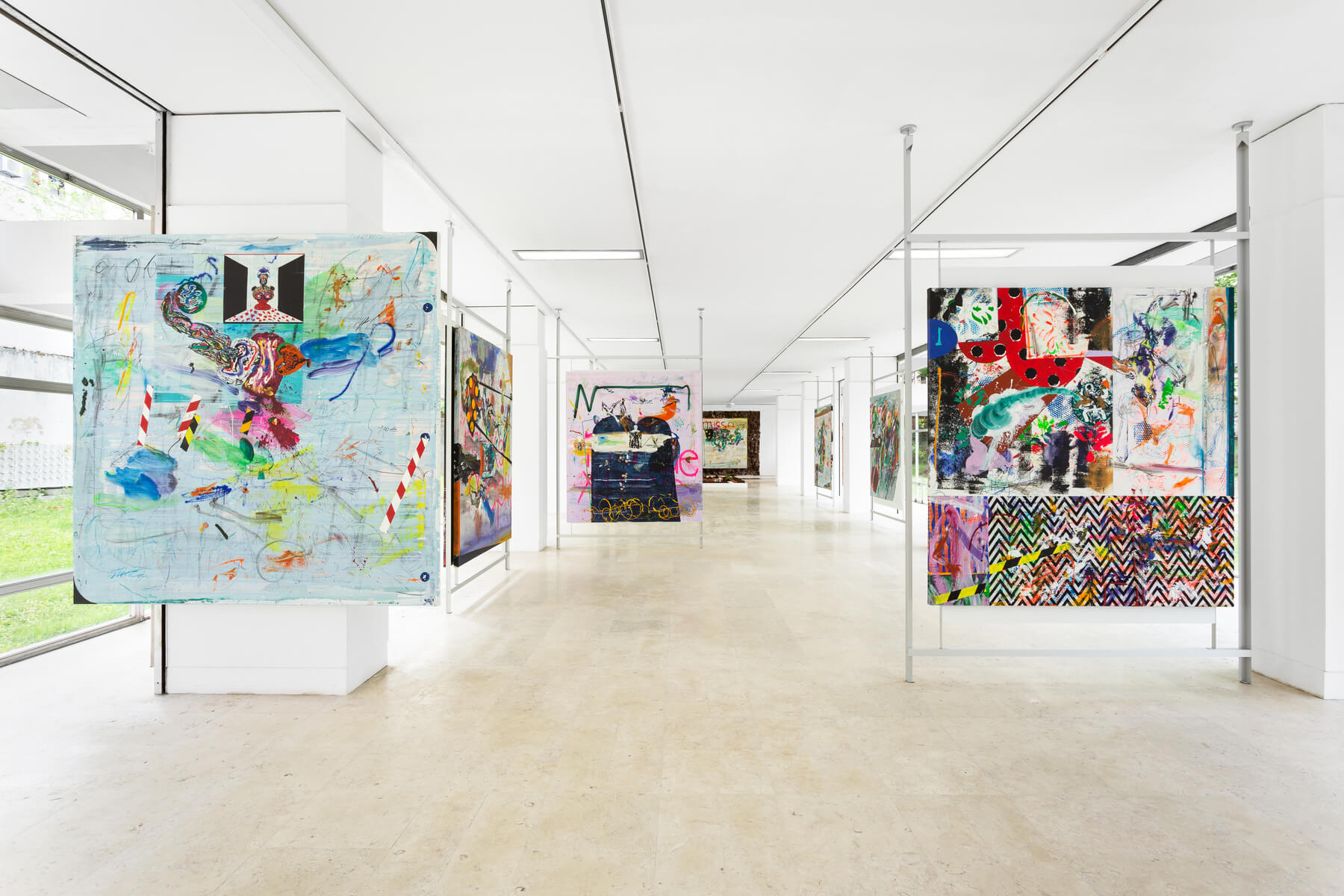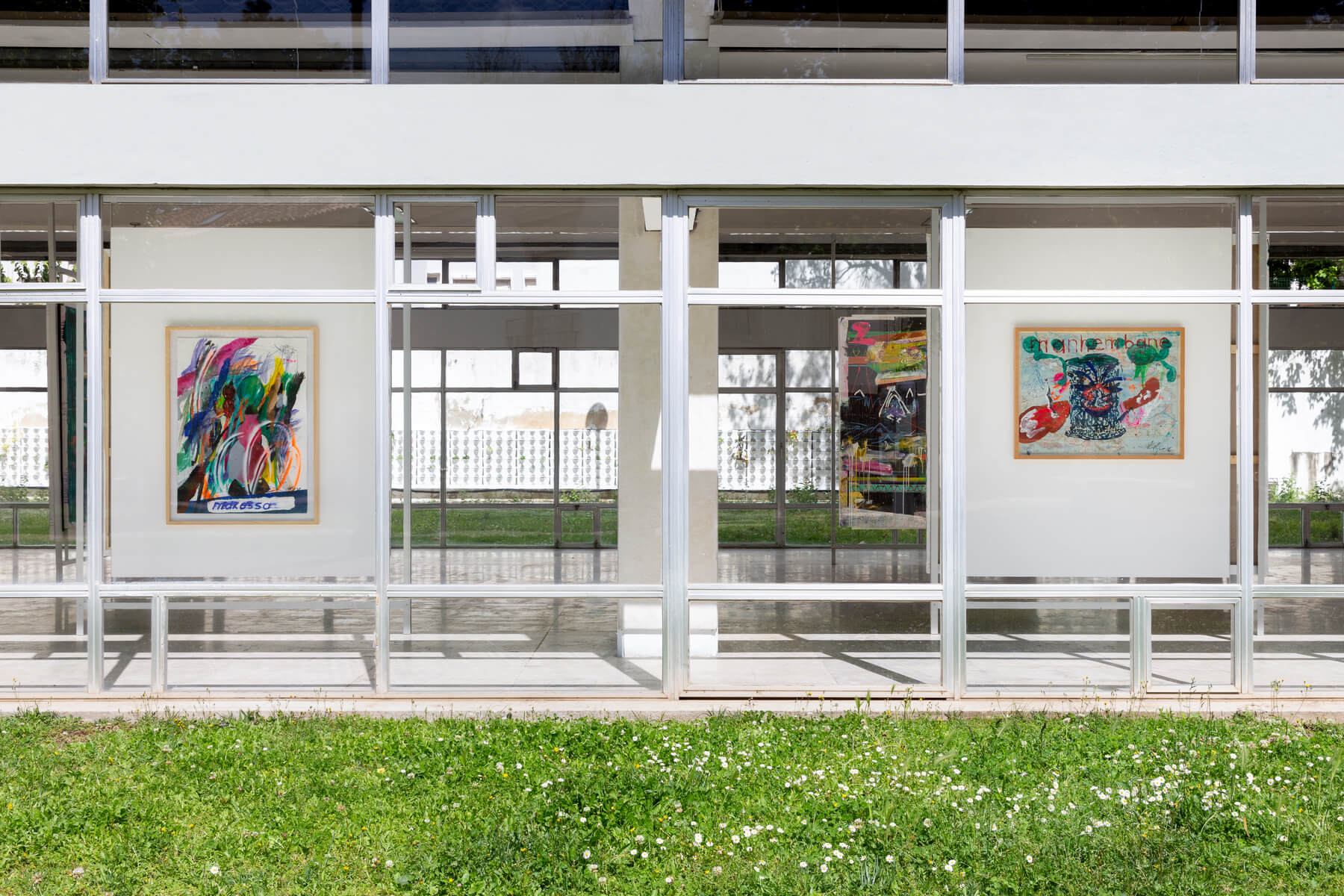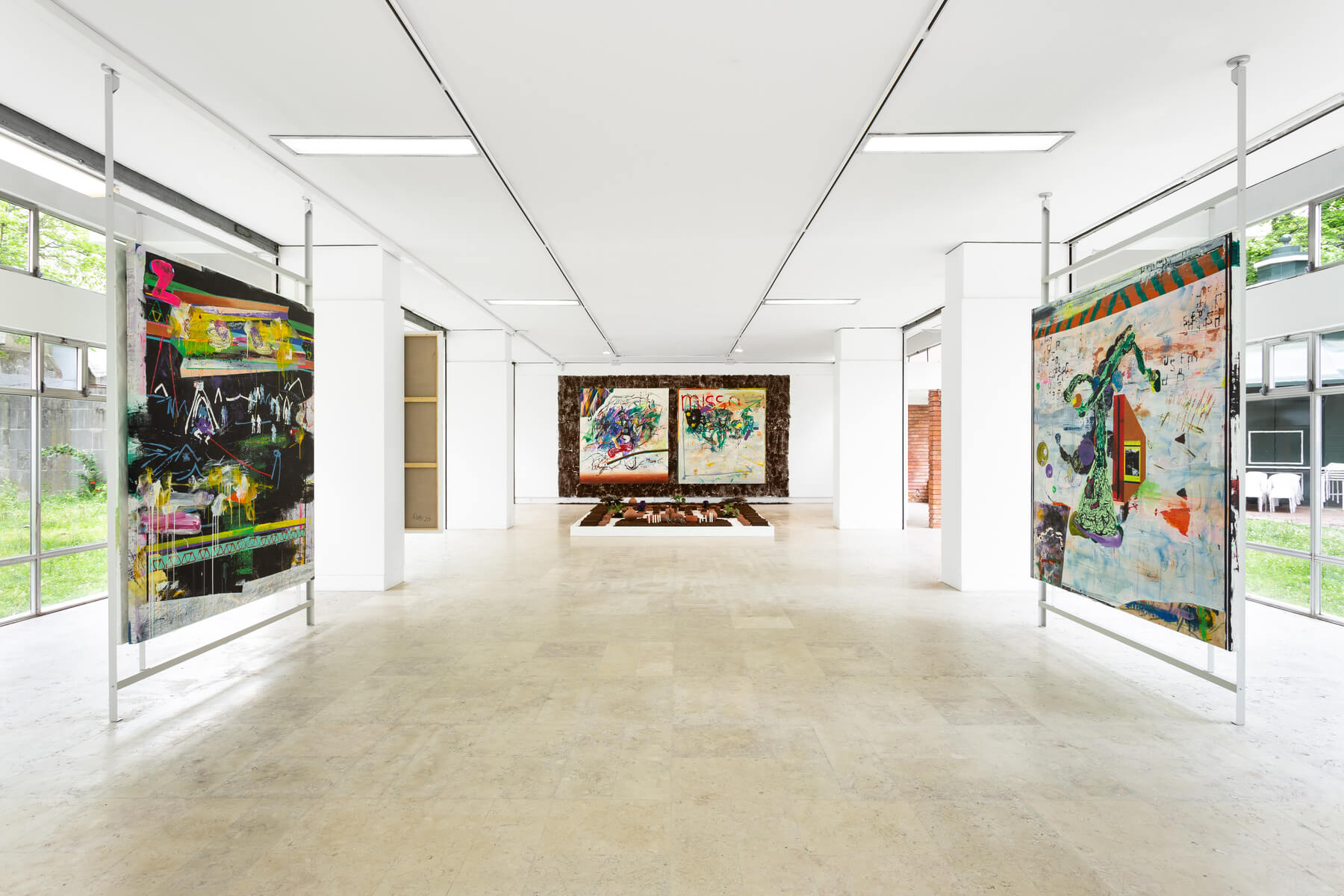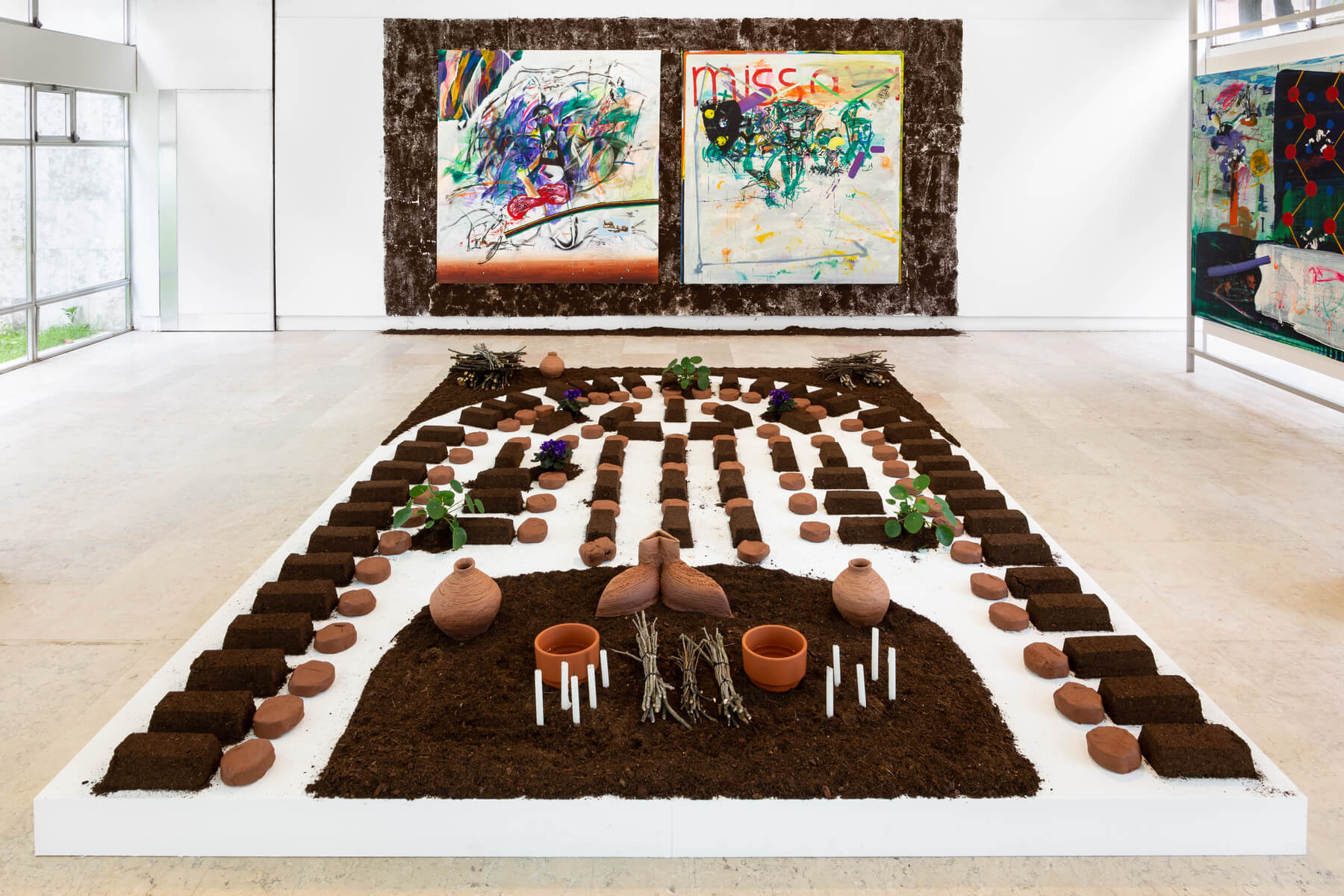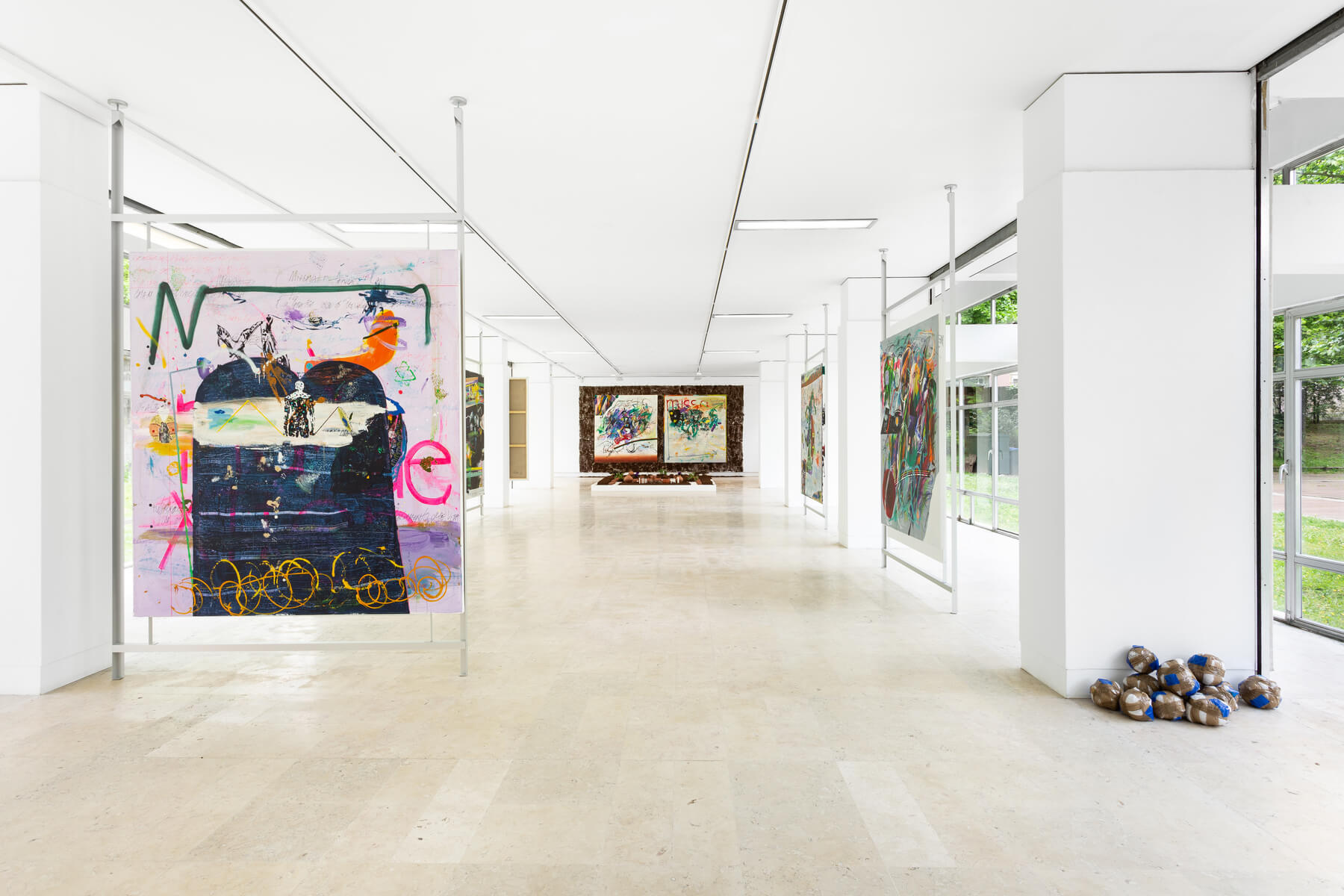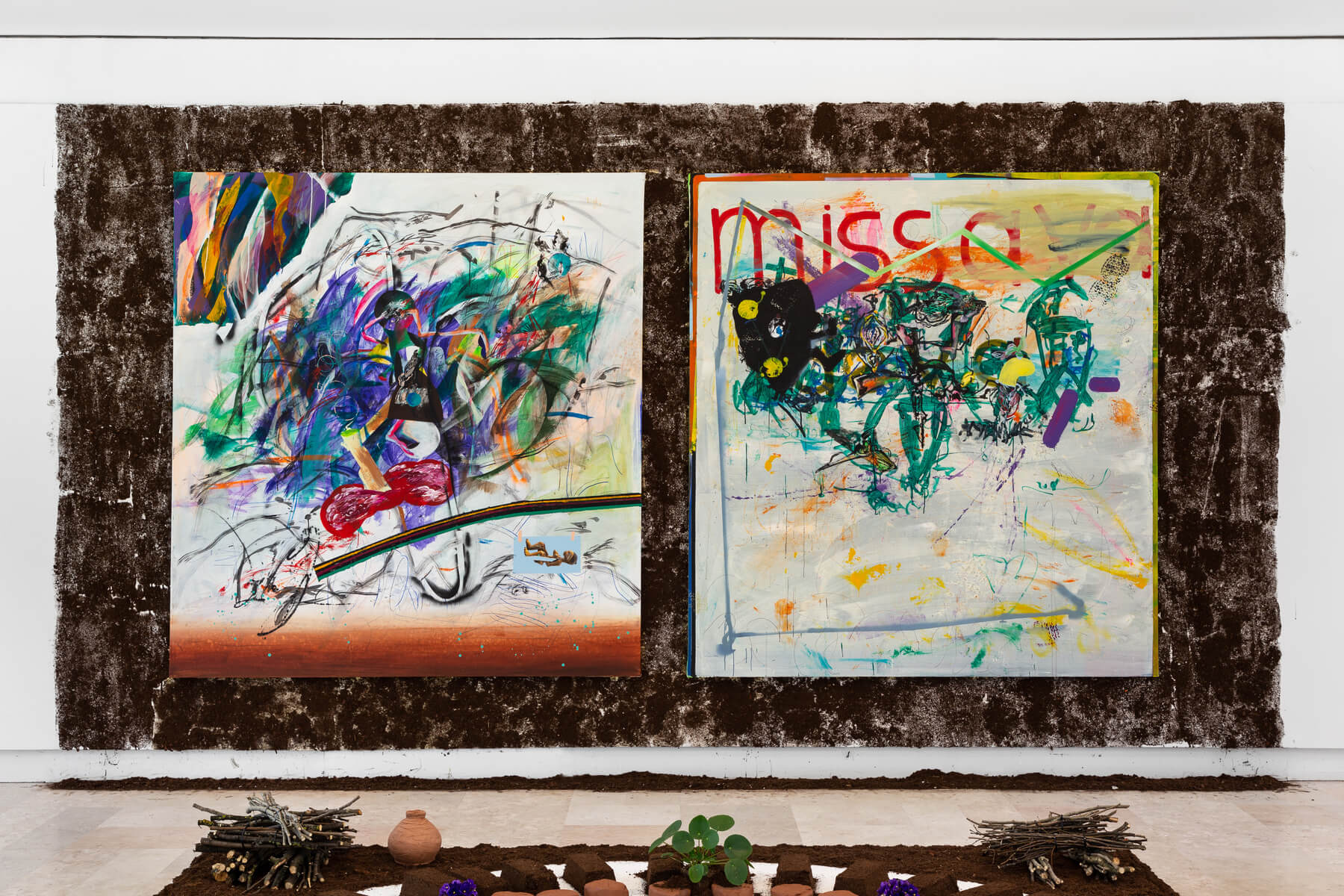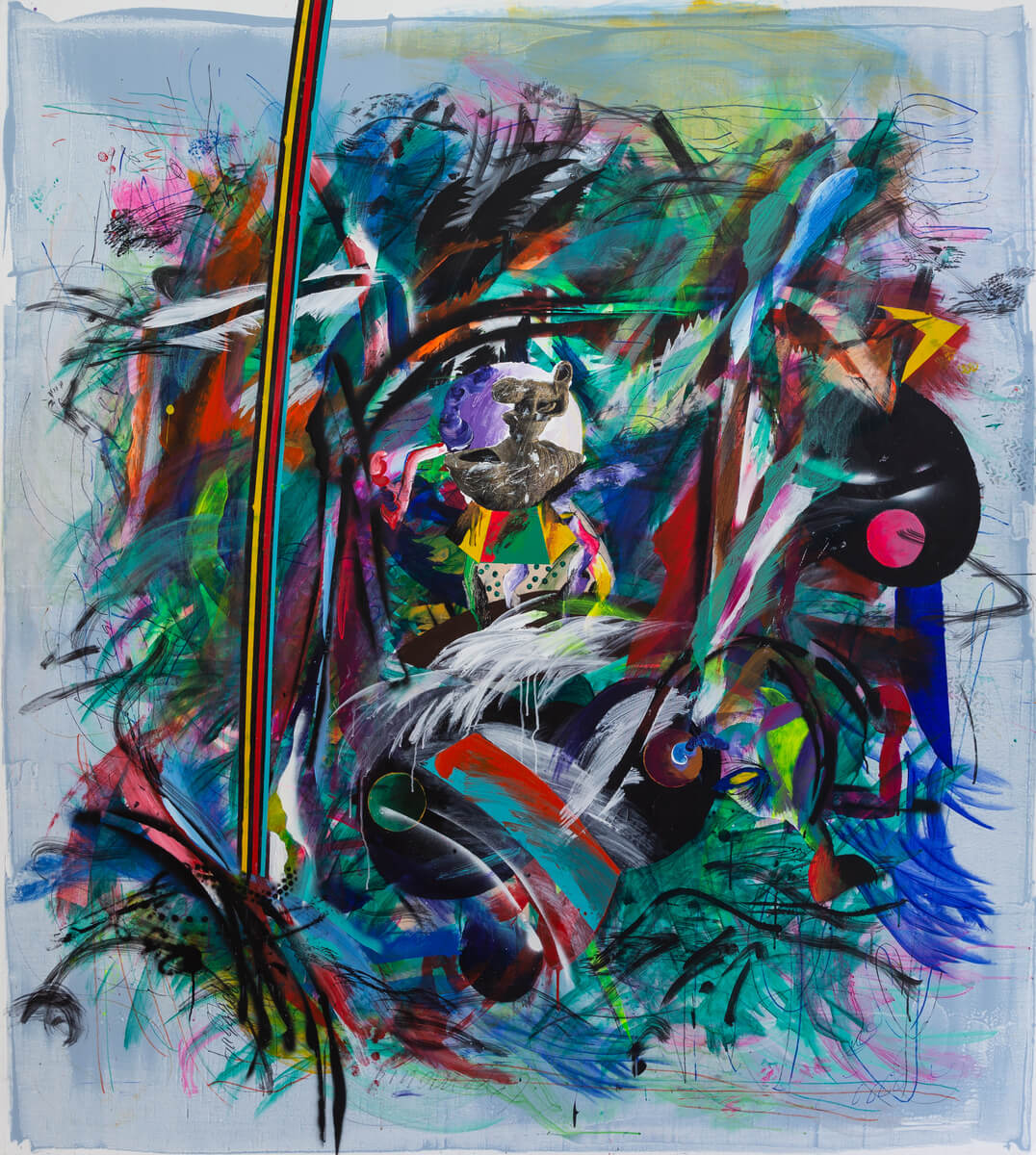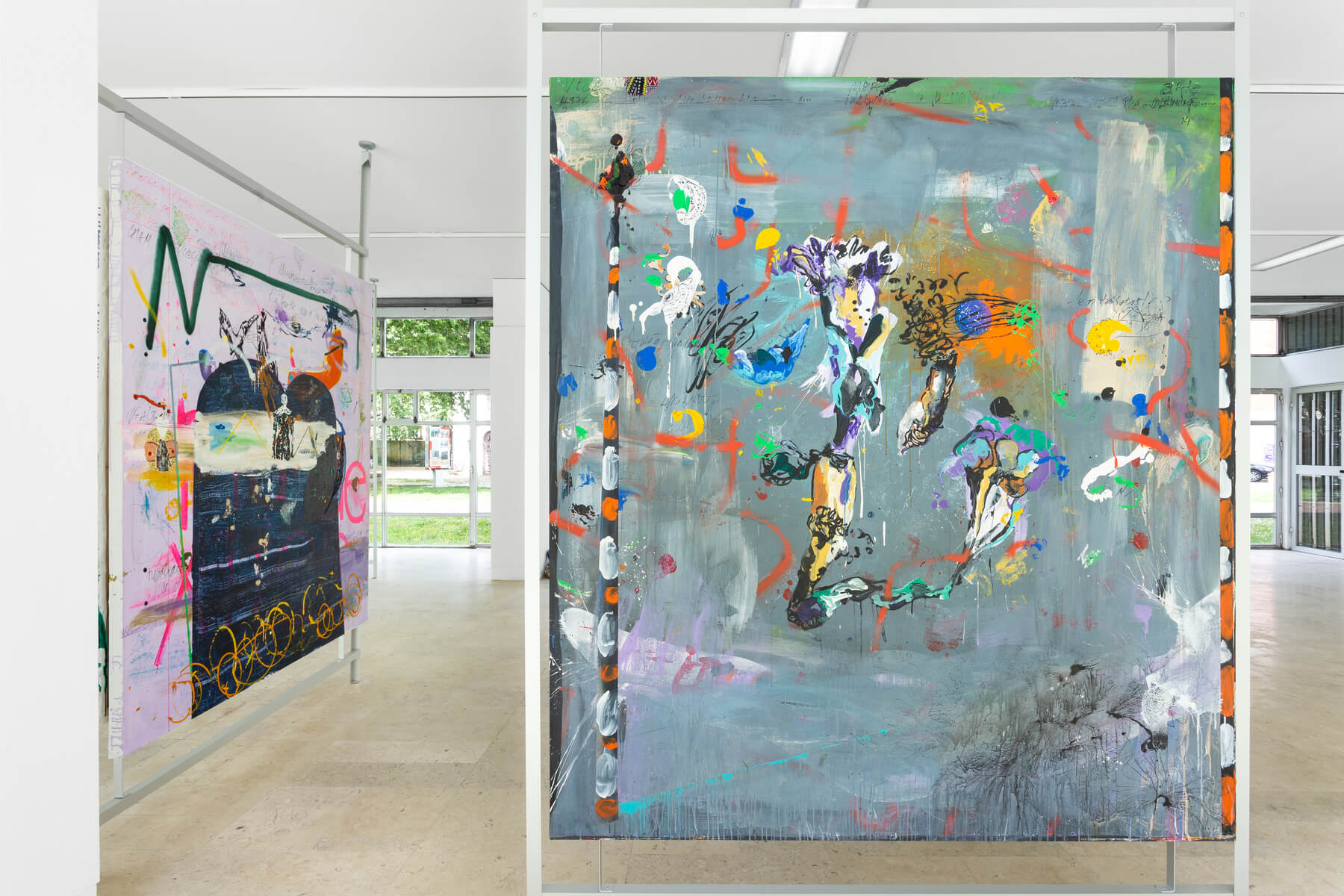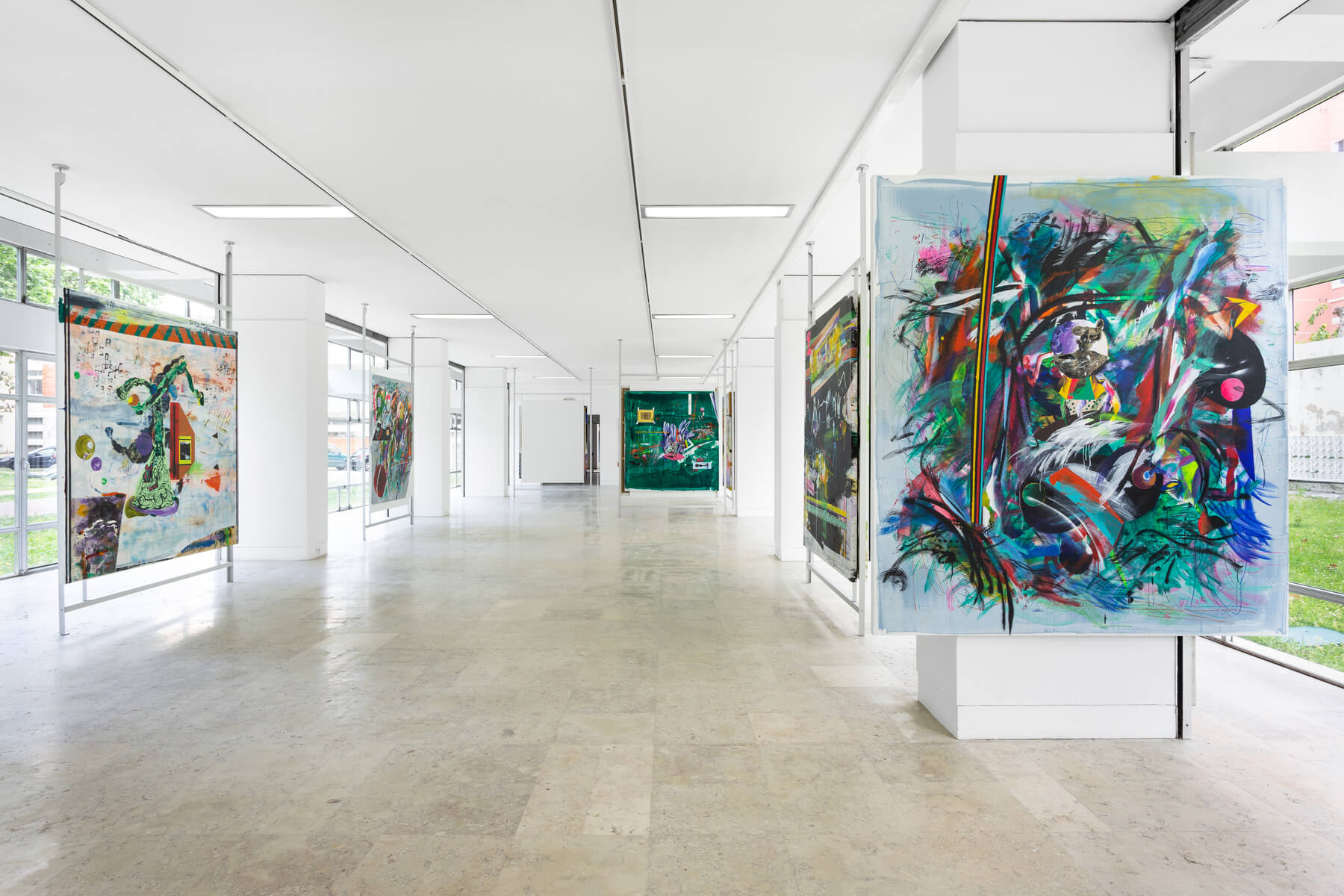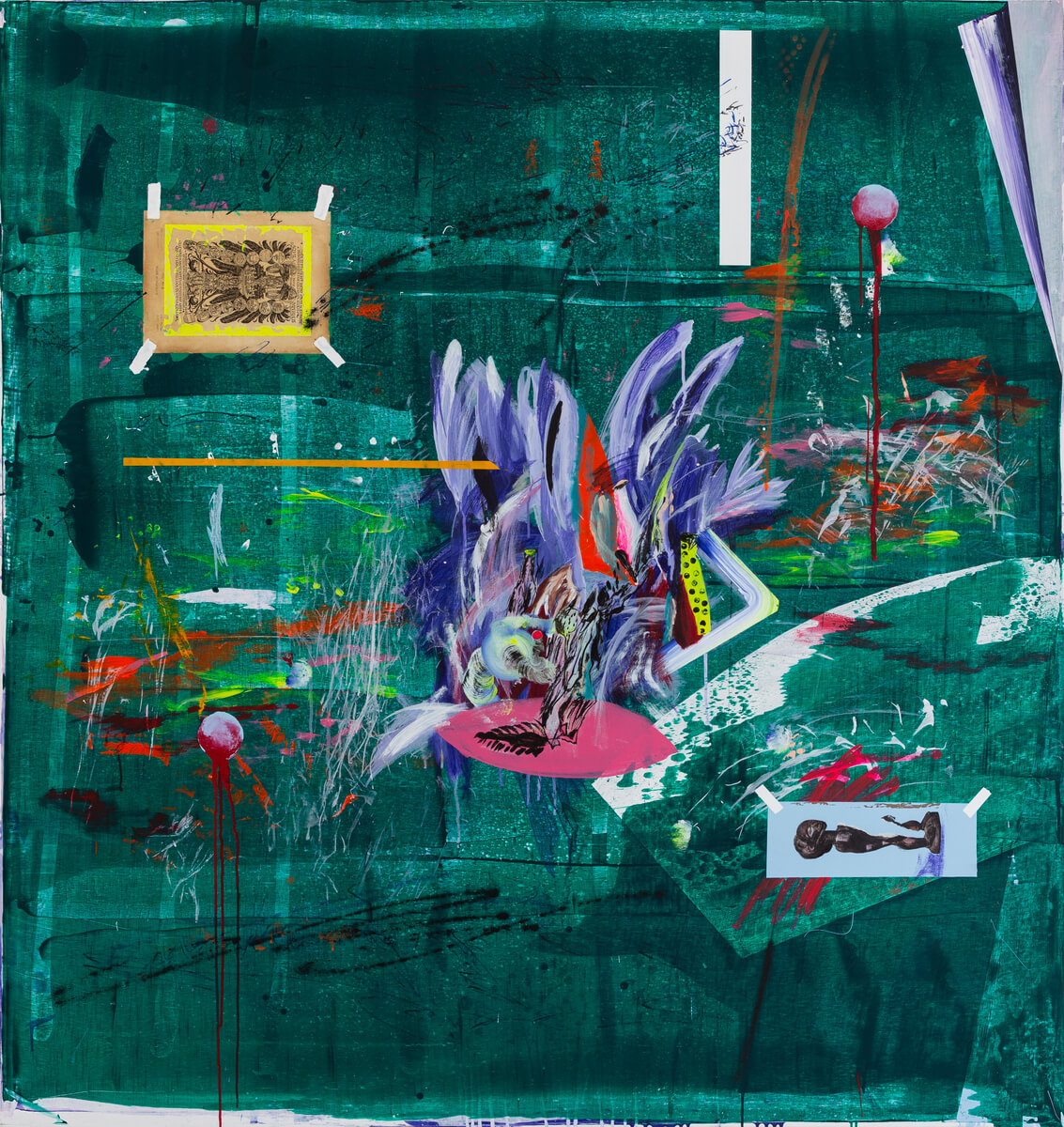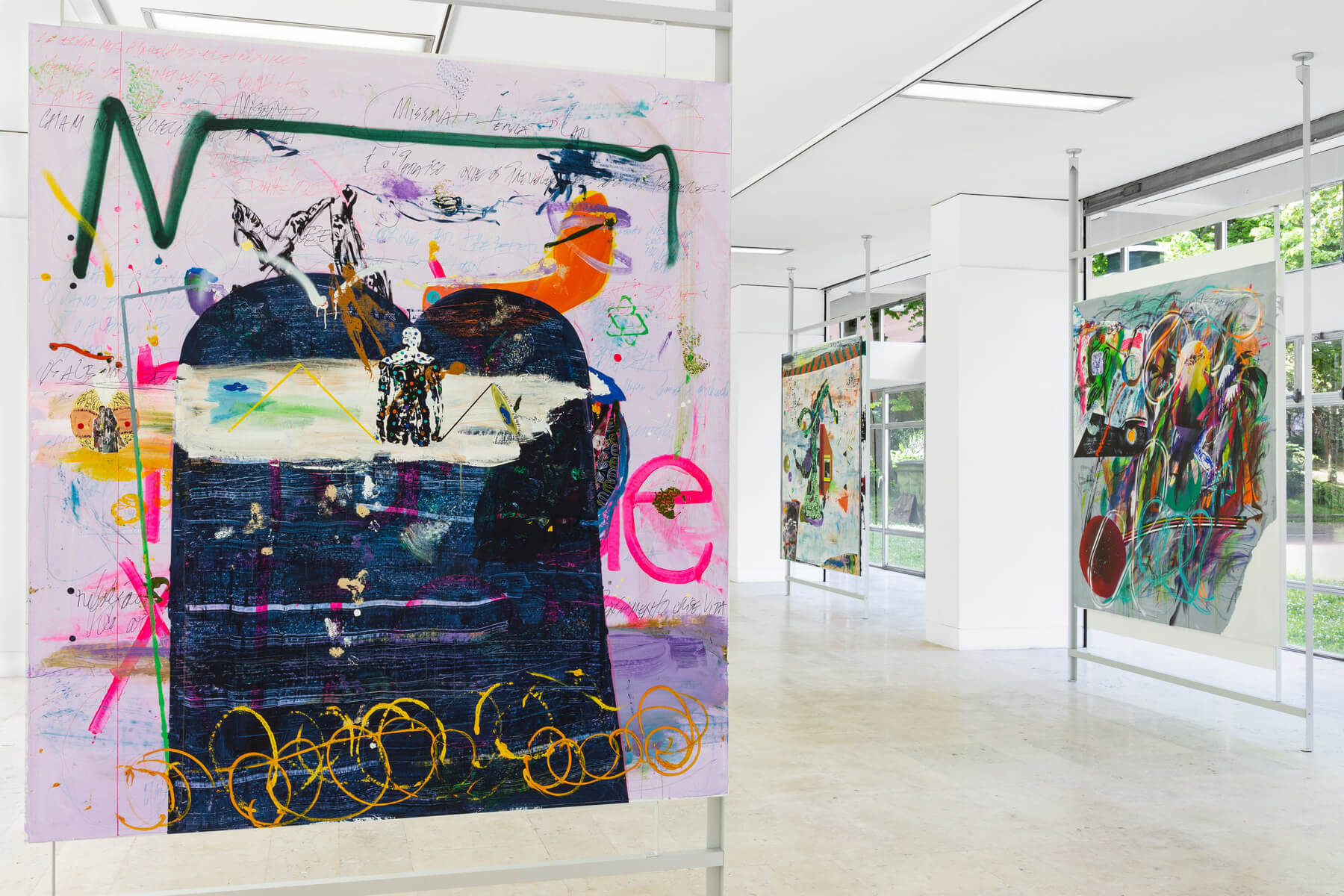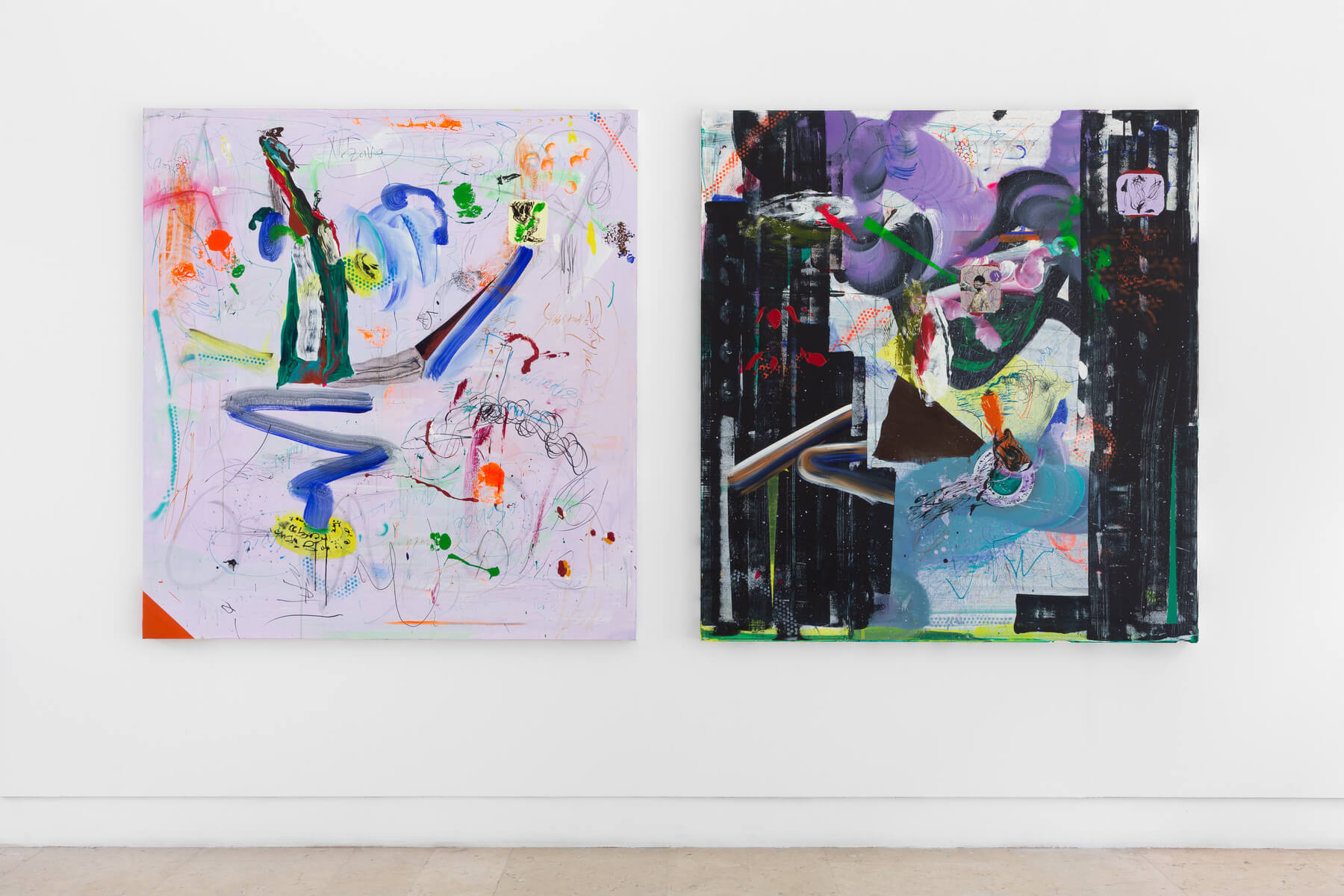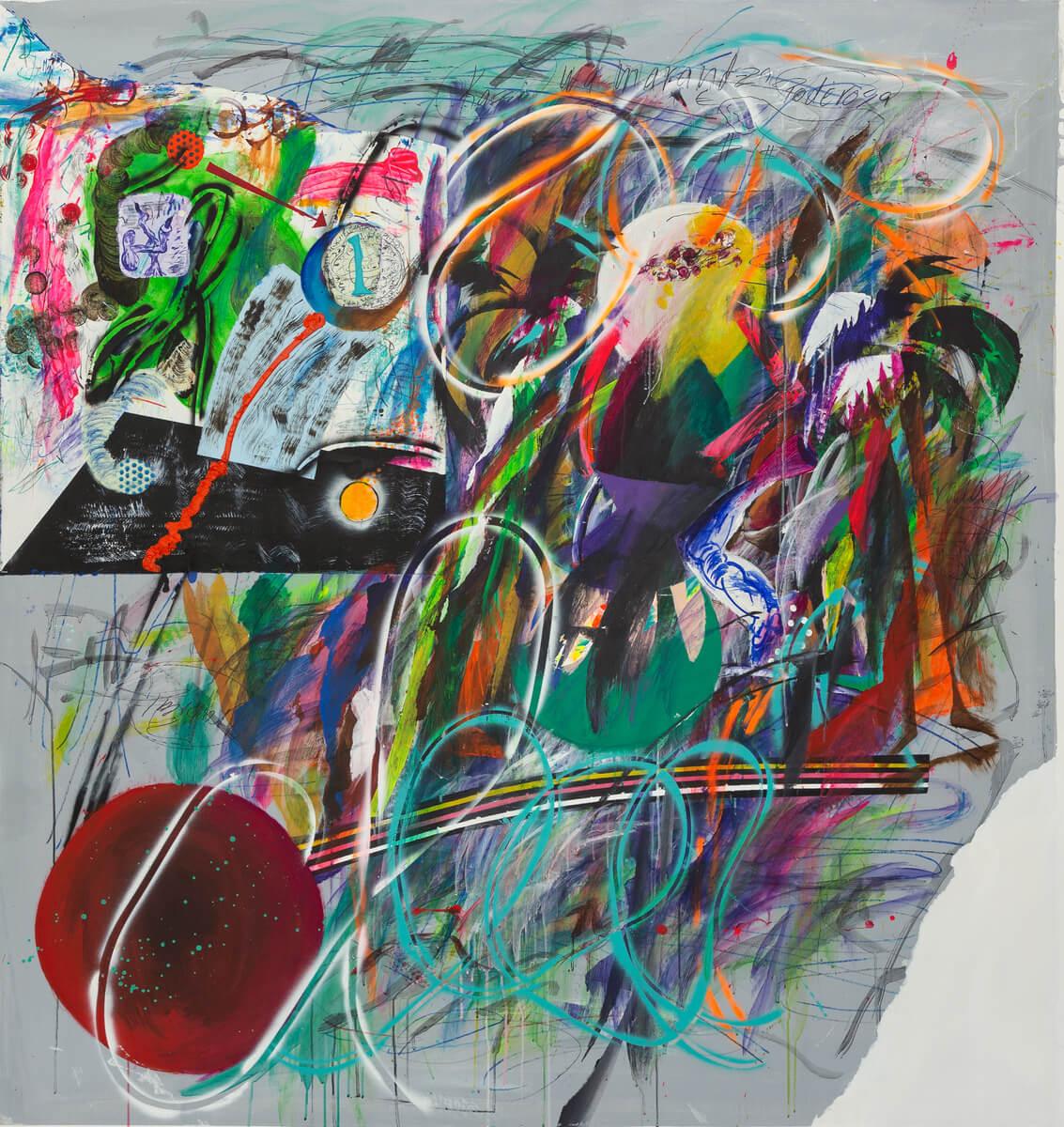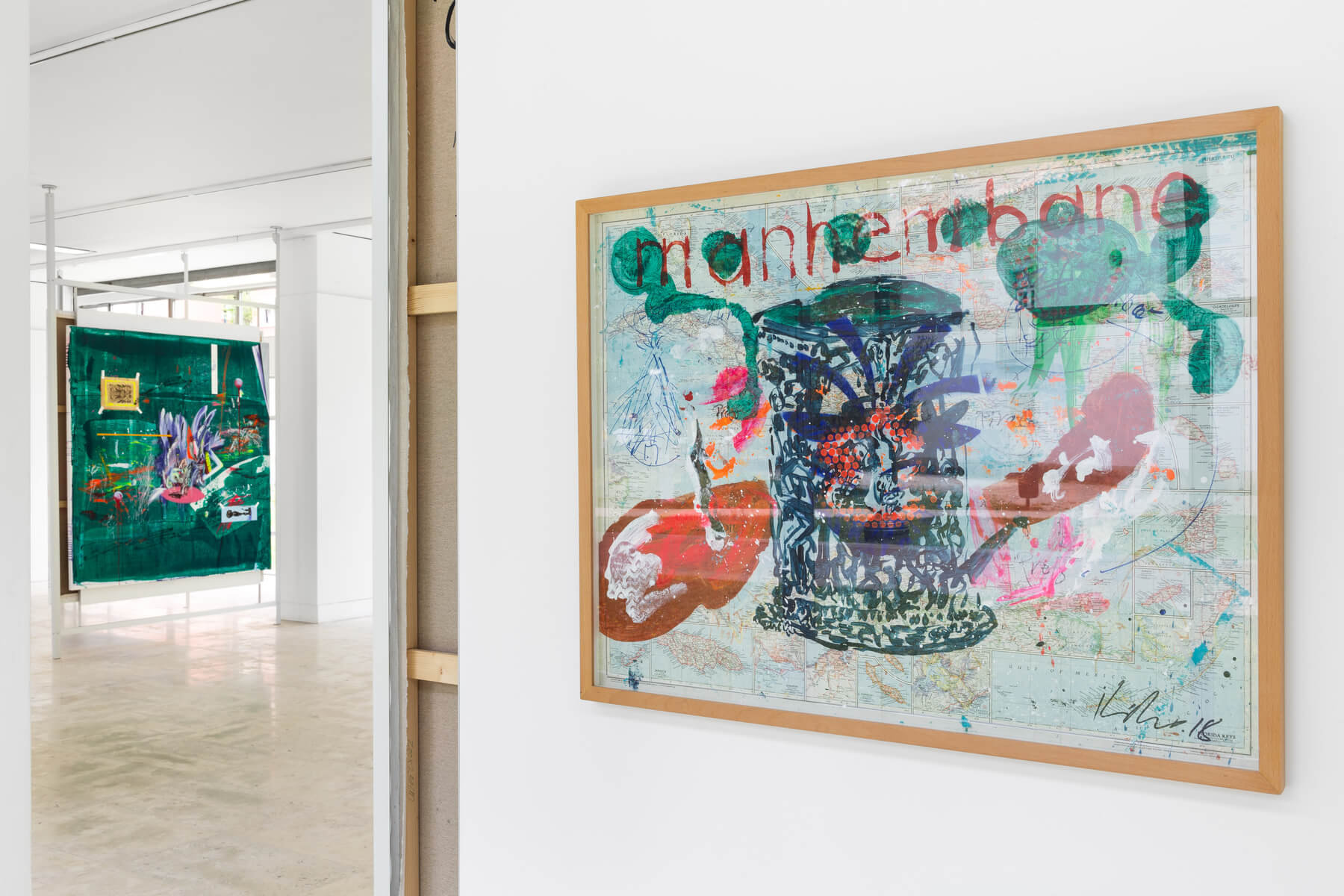– 27.06.2021
Is it possible to explain the universality of Ilídio Candja Candja’s work? Is it a result of instinct?
Is it a result of the progressive degradation of attitudes towards other cultures, masquerading as globalisation, and, as such, extending to African and other non-European religions? Such attitudes culminated in the absolute denial of the religiosity of the populations of these immense regions, although there is a timid recognition nowadays.
One does not need to write a long dissertation to demonstrate that traditional religion in Africa, and in Mozambique in particular, forms part of a system. Indeed, the exhibition Octopus and Myopia is an unmatched demonstration of this fact, especially in its “description” of the elements that make up various rites, since a rite presupposes an overarching principle that serves as a point of reference, and in which this rite finds its explanation and power.
The staging of the altar in the exhibition space, for example, asks questions of us. Why should the “altar” of a xikw/tchikw* be inside the thatched hut while that of the nguluve** should be outside it on a large tree?¹ This is not arbitrary or determined by individual taste, and finds a logical explanation not in itself but in the whole of the culture. This staging addresses Ilídio Candja Candja’s own migration, as well as that of the African community to Portugal and the movement of people more broadly, including the movement of colonial slaves across the middle passage from Africa to South America and the Caribbean for socio-economical motivations.
The painting afrodeezia #1, featuring the word missava, concerns Ilídio Candja Candja. Focused mainly on the visceral experience of nature, this work evokes a mythical and apocalyptic experience of the natural world, belying the violence and confusion of creation, be it artistic or natural. In the untitled painting we find a reference that transports us to the sound of a Cameroonian urban music style known as makossa. From this visualised sound, we encounter the painting ancestral stereo #1 or fragments of memories and nostalgia in the painting Home i miss you.
In this thinguluve*** “ceremony” at the altar of the gallery, the continent is evoked in the painting África minha #3, including the medicine of the peoples of Northern Mozambique in the painting Makua Medicine Man, in a kind of return through the painting Caminho de volta para casa, yes we can #2.
Elements of nature and life such as oxygen and water can be found in the painting 02#H2O, while the painting África Minha #1, with its manhembane inscription, reveals vestiges of Ilidio Candja Candja’s background and identity.
The exhibition Octopus and Myopia stems from a broadly anachronistic disposition and covers significant milestones in Ilídio Candja Candja’s artistic development since his move from Maputo to Porto. This relocation was a catalyst for a major transformation in his painting practice and a “distancing” from ceramics, which he trained in; a change from the direct representation, “almost” common in the artistic practices in the city of Maputo, to a more abstract work without concern for the question of form, but still very cautious in the application of colour. These techniques can be detected in the “cut-ups” of images in union with the chromatic surface, of gestures and other elements of the surrounding environment, with the studio taking on the role of a sanctuary.
As a young migrant, Ilídio Candja Candja addresses in his paintings individual, family and cultural issues of belonging and a broader concern with geographical and national changes. The paintings summon a sensation of individual memory of his country, Mozambique, and of his relationship with the world at large, and with Portugal in particular.
¹Adriano Langa, Questões Cristãs, à Religião Tradicional Africana, Mozambique, Braga, Editorial Franciscana, 2nd edition, p.118, 1992
*xikw/tchikw – an important figure in African/Mozambican culture who stays inside the thatched hut.
This thatched hut is sacred.
**Nguluve – the head and protector of the family.
*** Tinguluve – plural of Nguluve
– Rafael Mouzinho, curator
– 27.06.2021

